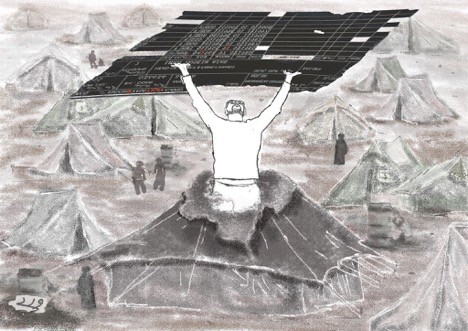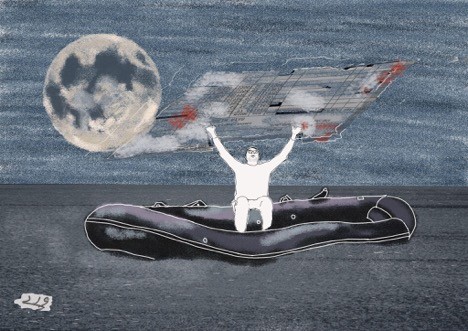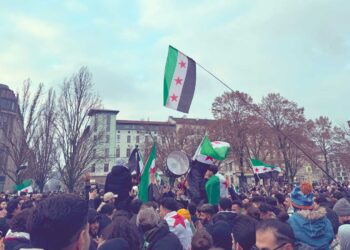As a person of color, I find myself compelled to prove that I am not a threat. As a refugee, the burden of proving my domestication weighs heavy on me.
Even as they portray the killing of my people on screens daily, my anger is expected to be composed and measured. I am not to raise my voice or utter curses, lest I disturb the sensitivity of the white colonizer striving to save turtles, meticulously packing groceries in paper bags, and hugging every tree in the world.
Yet, not all trees are equal. The colonizer remains silent when olive trees succumb to the flames under Israeli missiles. Perhaps olive trees, being trees of color, fail to garner the same concern. Or maybe the lifeless trees didn’t meet the required quorum for condemnation. Perhaps trees have a hierarchy based on the origins of those who care for them.

I am a trans man, and this identity surprisingly plays to my advantage in the Global North. It serves as a positive distinction, a green flag that sets me apart from the typical Arab stereotype. Despite being Arab, I don’t conform to the perceived image of someone belonging to a group that, by others’ standards, rejects me based on religion and customs. In the eyes of those around me, I diverge from the stereotype; I’m not one of the so-called “savages.” They scrutinize me for signs that I’ll dutifully pay my taxes, adhere to traffic rules, and warmly acknowledge every dog I encounter. Perhaps by embodying these traits, I’ll be deemed worthy of staying here – a privilege bestowed upon me by an employee with a stable job, leisurely sipping his coffee, laced with moderately warm milk, bridging the time between one vacation and the next.

Domesticating my voice enough to inhabit the ink in my pen is a challenge, as is transforming my screams into words. I’ve replaced the mourning black on my social media with a photo of myself wearing a keffiyeh, the attire of the Palestinian peasant—the first among us. No longer sad, I am angry.
They have domesticated us, my friend, teaching us that anger is uncivilized. Those who fail to feel anger at the senseless killing of children are victims of their own objectification. Those who are not angry today are hopeless.
In the Quran, a verse states: “In the name of God, the Most Gracious, the Most Merciful. [Are those who know equal to those who do not know?] Today, I comprehend what was once unknown; I can no longer remain silent.
My anger stems from the dismissal of our tears and the insistence that our deaths are normal—unremarkable. Whether on sad escape boats or under the barrels of regimes they planted, our deaths, day after day after day, by Israeli bullets are normalized.
I yearn to reclaim my right to sorrow. I refuse to be as unyielding as a rock. I want to permit myself to cry, for is not the sea God’s tears, cleansing all wounds? I have been bleeding for years.








